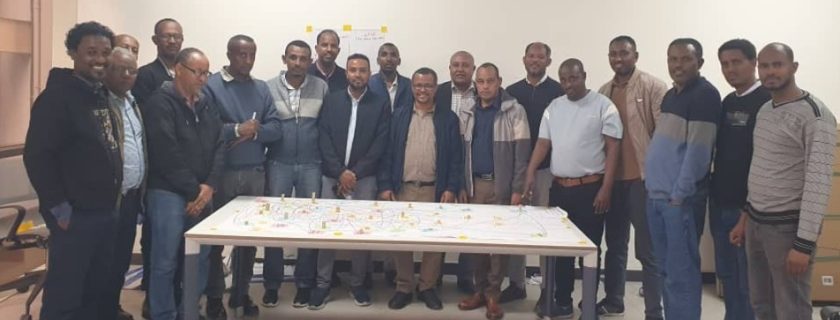Addis Ababa, Ethiopia. The Armauer Hansen Research Institute (AHRI), in collaboration with the Norwegian Veterinary Institute (NVI), Addis Ababa University, and the National Animal Health Institute, successfully convened a three-day consultative workshop from September 4-6, 2025. The event, supported by the Norwegian Veterinary Institute’s One Health Milk Project, focused on advancing milk safety and reducing zoonotic disease risks within Ethiopia’s dairy sector.

The workshop convened a diverse group of multidisciplinary experts and stakeholders from the public health, livestock, environmental, regulatory, UN agencies, Civil societies, NGOs and food safety sectors. Its primary objective was to prioritize milk-borne zoonotic diseases and identify key actors in the milk value chain. Discussions covered several core areas: categorization of stakeholders according to their influence, interest, and role in the milk value chain (primary, secondary, and tertiary); review of the current One Health disease surveillance strategy, highlighting how milk-borne zoonoses are included or not included, and the gaps and opportunities this presents One Health network in milk value chain Ethiopia. Moreover, evaluation of laboratory diagnostic capacities to identify existing gaps and needs in milk zoonoses diagnosis. By bringing these elements together, the workshop created a platform for collaborative action and practical recommendations aimed at strengthening surveillance, improving laboratory systems, and ensuring safer milk production and consumption in Ethiopia.

Key Outcomes and Next Steps
Through intensive deliberations, using Multi-Criteria Decision Analysis (MCDA) method participants prioritized five major milk-borne zoonotic diseases requiring urgent national attention:
- Hemorrhagic Colitis
- Brucellosis
- Zoonotic Tuberculosis
- Non-typhoidal Salmonellosis
- Listeriosis
The net-mapping exercise further identified 43 critical stakeholders, with the Ministry of Agriculture and the Ministry of Health emerging as the most influential governmental actors. Among non-governmental partners, United Nations agencies were recognized as the most impactful contributors.

The workshop’s outcomes will guide the development of evidence-based policies, targeted capacity-building initiatives, and coordinated One Health interventions, aiming to safeguard public health and strengthen Ethiopia’s dairy sector resilience.
